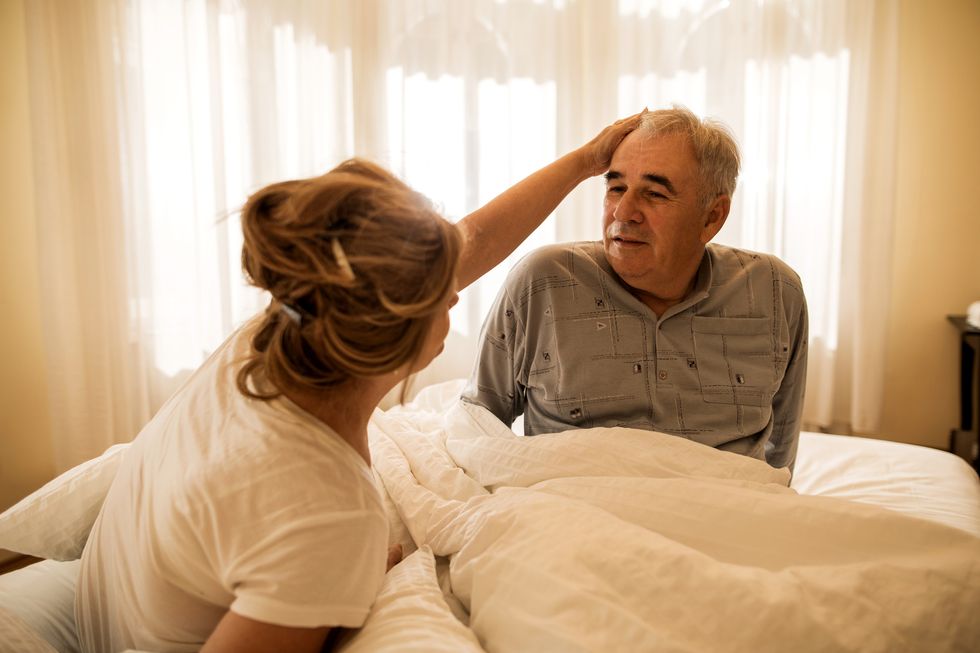Q: How can I talk to my partner about making love again?
A: I so appreciate your question, first, because it tells a story that's shared by many, many couples, and also because it shows how much you care. Your partner had a hysterectomy a few years ago, including the removal of both ovaries. She's not using any hormone therapy.
Intercourse is "dry" for both of you, and therefore uncomfortable. She describes a sensation like "being stuck by needles." You both miss the intimacy you had earlier in your relationship, and you believe your partner is experiencing some depression.
You're feeling like there aren't treatment options, because you've heard about side effects and risk of cancer. And yet, you want to "be there for her" and to make love again.
Let me start by saying that your understanding of effective treatment options as causing harm is misguided. A great resource for dispelling some myths and informing yourselves about treatment options is Estrogen Matters: Why Taking Hormones in Menopause Improves Women's Well-Being, Lengthens Their Lives—and Doesn't Raise the Risk of Breast Cancer. You can get a preview of the content by listening to this interview I did with the authors for our podcast.
Your partner is experiencing painful intercourse as a result of progressive genitourinary syndrome of menopause (previously called vaginal atrophy), and there are safe and effective (and even nonhormonal) prescription options. Some of the terms you use to describe her pain suggest she may also have vulvodynia.
Unfortunately, once things get to the point you describe, over-the-counter, nonprescription options (like moisturizers and lubricants) aren't really therapeutic. Those are best used early in the process for prevention.
When I say this is "progressive," I mean it will naturally, if untreated, get worse. Of course, it's not realistic to expect her to be interested in sex when it causes pain, and we recommend she not have sex if it is causing pain. Having painful sex will in turn cause additional problems involving pelvic floor muscles (vaginismus), another condition contributing to pain.
I explain to women this is a "fork in the road": You move forward without intercourse as part of your intimate relationship or you seek treatment to regain/retain comfort, and then continue treatment as long as you want intercourse to be a part of your relationship.
You'll be best served—and I believe you'll both be happy—if you confront this situation and have an honest conversation about mutual desires and needs (and your message to me was a good starting point!). There is little pleasure for you knowing that intercourse is causing pain for her.
Use this website, if you like, to talk about how things change for women and the available treatments; you can start by sharing this page, and then navigate to related topics.
If restoring sexual health to the relationship is to include intercourse, I'd recommend that your partner see a certified menopause care provider (I often suggest the North American Menopause Society's "find a provider" link) who can help her to understand her condition, based on a careful examination, and then understand the treatment options.
Good luck! I know from my own research and practice with patients that there are safe and effective treatment options, and we can almost always restore comfort and pleasure.
Barb DePree, MD, has been a gynecologist for 30 years, specializing in menopause care for the past 10. Dr. DePree was named the Certified Menopause Practitioner of the Year in 2013 by the North American Menopause Society. The award particularly recognized the outreach, communication and education she does through MiddlesexMD, a website she founded and where this blog first appeared. She also is director of the Women's Midlife Services at Holland Hospital, Holland, Michigan.







